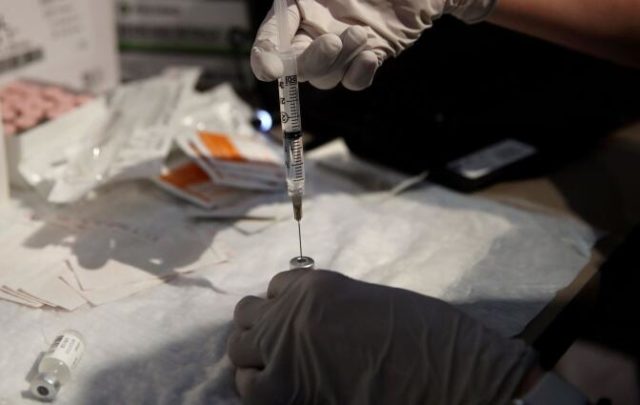“South Africa can not afford another procurement fiasco akin to that which characterised the purchase of PPE”
SEVERAL organisations have expressed concern over the possibility of corruption in the procurement and distribution of Covid-19 vaccines when they become available to the country.
The head of the NGO African Alliance and founding member of the Vaccine Advocacy Council, Tian Johnson, said the pandemic of corruption and mismanagement within the public health sector would manifest the same way in the context of Covid-19 vaccines as it has in the past with a range of public health care issues.
Johnson said all cases of theft, whether it be Covid-19 vaccines, therapeutics or supplies, should be investigated, prosecuted and seen through to conviction, to set a public example of accountability.
Chief executive of the Organisation Undoing Tax Abuse (OUTA) Wayne Duvenage said if the government’s track record in managing big, complex matters of this nature was anything to go by, “we do believe there will be corruption and maladministration”.
Duvenage said the government’s recent personal protective equipment (PPE) procurement was a classic example of a critical project that was fraught with corruption, and that was discovered too late, resulting in much of the funds being lost.
“The price that SA is paying for vaccines smacks of corruption at the highest level, and if the government is to gain the trust of the people, we need clear answers to these questions on pricing, who will be policing accessibility to the vaccine, the police, the army? If it is the SA police and the army being used for security, the trust levels here are low and we expect breaches,” said Duvenage.
Institute of Race Relations (IRR) chief executive Frans Cronje said he thought that the scope for corruption around procurement was limited – especially where vaccines were purchased directly from reputable firms in Europe and North America.
Cronje said, however, to be sure the IRR would press for transparency around any of those transactions, and that the relevant data was made available to the South African public for scrutiny.
“Purchases via the governments of Russia and China should be subject to particular scrutiny though,” said Cronje.
He said while their concerns regarding corruption were limited, they were extremely concerned at the delays in placing orders and making vaccines available to South Africans, and the organisation would resort to the courts to press for such delivery should accelerated progress not become evident.
In a bid to avoid the levels of corruption that erupted in the procurement of PPEs, a non-profit organisation working to fight corruption, Corruption Watch (CW), said it had laid out a number of questions to the National Treasury on crucial aspects of emergency procurement that were enabled under the National State of Disaster.
CW said the areas of primary concern were the urgency in saving lives through administration of the vaccine, and the public finance and governance aspects that allowed for transparency and public disclosure.
CW’s executive director, David Lewis, said the questions posed related not only to transparency in procurement, but also to issues of oversight, transport, storage and distribution of vaccines in possibly the largest public health roll-out in the country’s history.
Lewis said the country could not afford another procurement fiasco akin to that which characterised the purchase of PPE.
CW’s head of Legal and Investigations Karam Singh said: “Procurement associated with the roll-out of the vaccine is an area that will require special scrutiny to ensure we do not see a repeat of the PPE procurement debacle.”
In a leaked letter from the National Treasury’s director-general, Dondo Mogajane, he said in so far as procurement of vaccines was concerned, it would be subjected to the monitoring and oversight framework of all public procurement and expenditure.
Mogajane said the Public Finance Management Act provisions and related processes were in place to ensure accountability, sound financial management and fairness in procurement.
He said the auditor-general would be engaged at the appropriate time to conduct real-time audits on the procurement process for the Covid-19 vaccines.
“Besides the national Treasury and the accounting officer of the national department of health itself, important institutions with oversight of procurement and budget execution are the auditor-general, Parliament, the SA health products regulatory authority and provincial treasuries and legislatures for provincial health departments,” said Mogajane.








